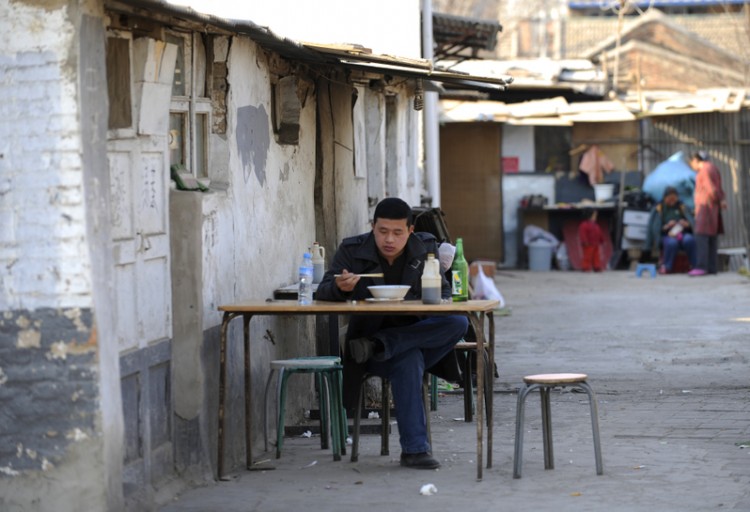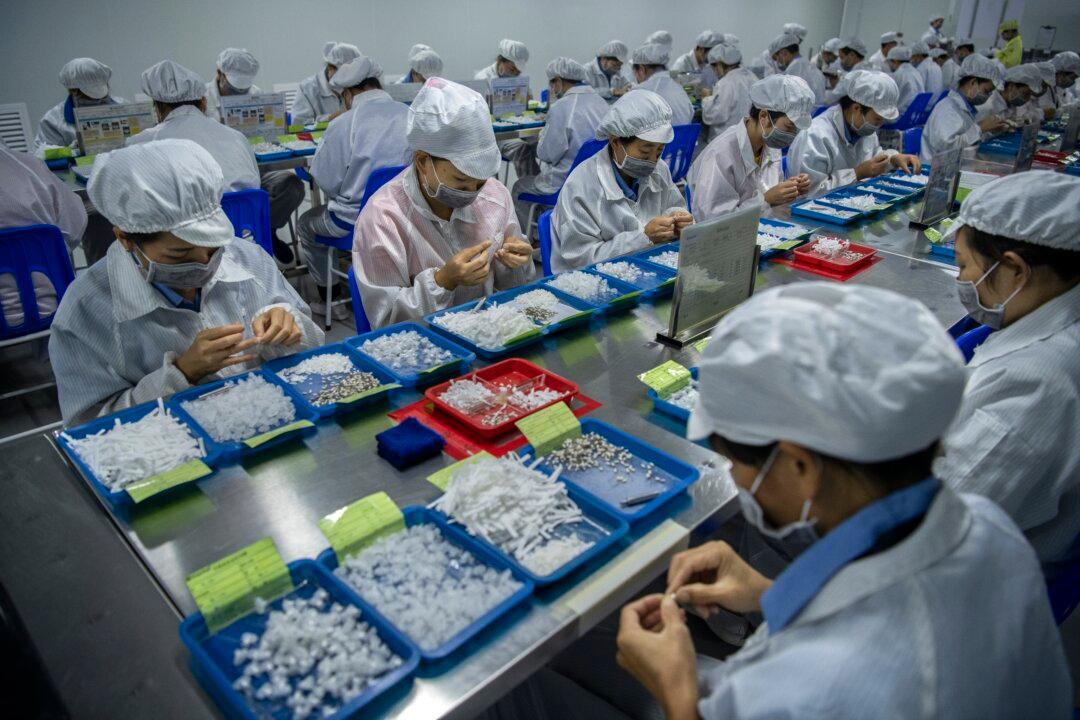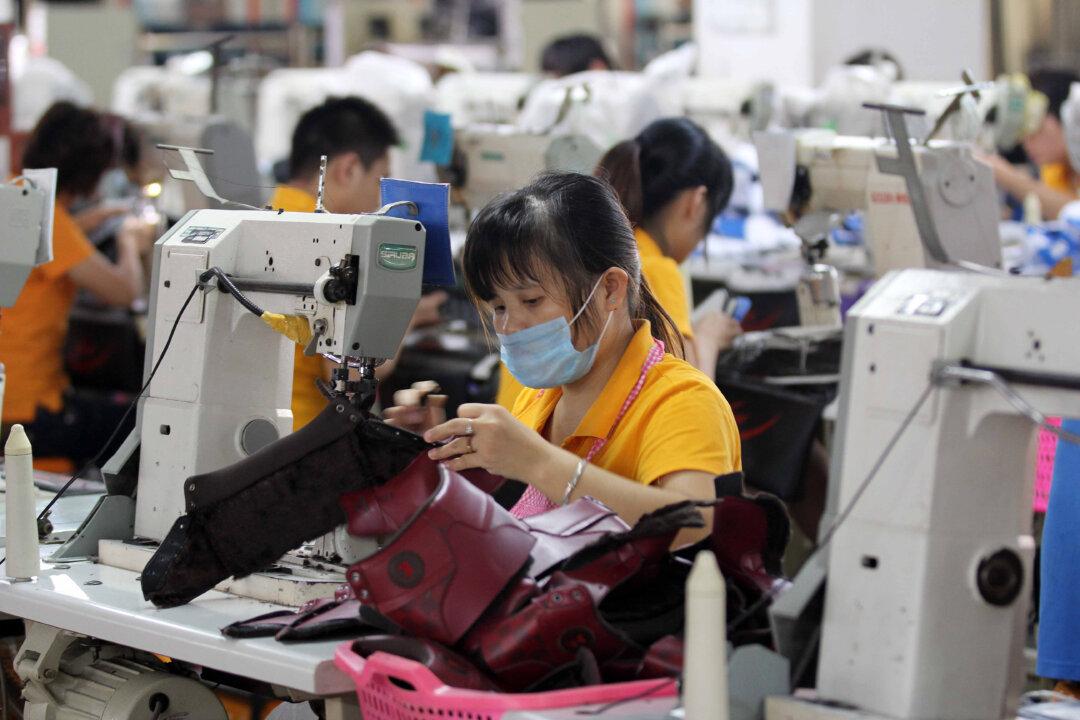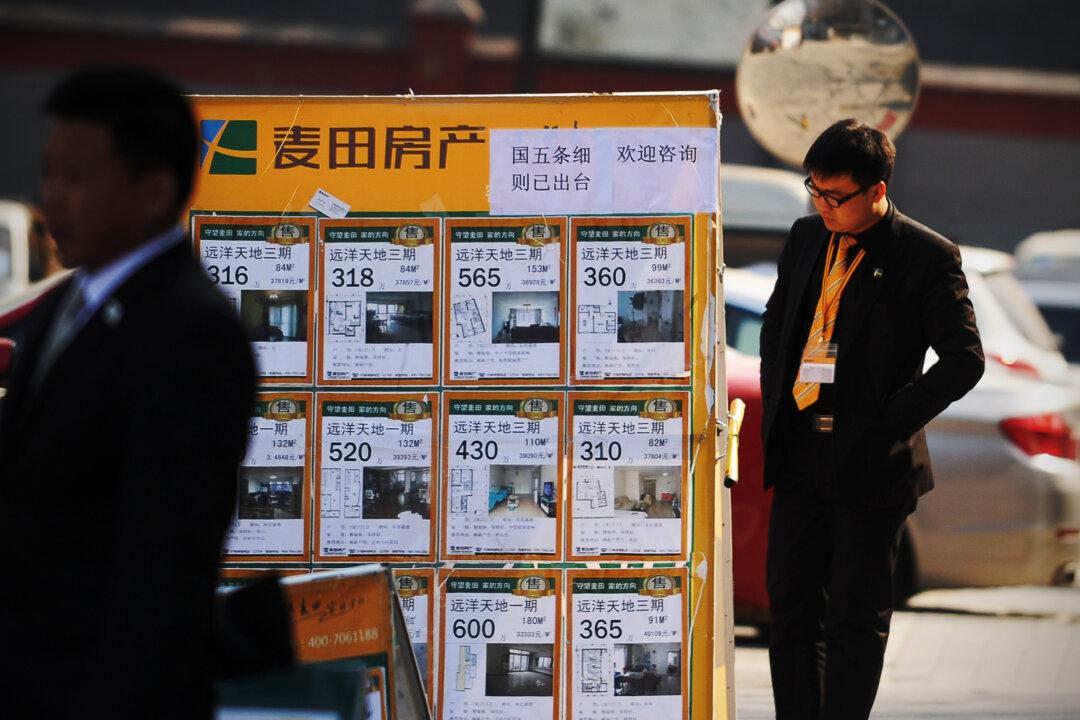China’s Happiness Has Not Grown With Its Economy
The propaganda specialists in Guangdong Province must have seen this one coming: Chinese aren’t very happy.

A man has his lunch at a noodle restaurant in Beijing on April 11. Satisfaction with life for ordinary Chinese has not grown as fast as the economy over the past 30 years. Liu Jin/AFP/Getty Images
|Updated:





